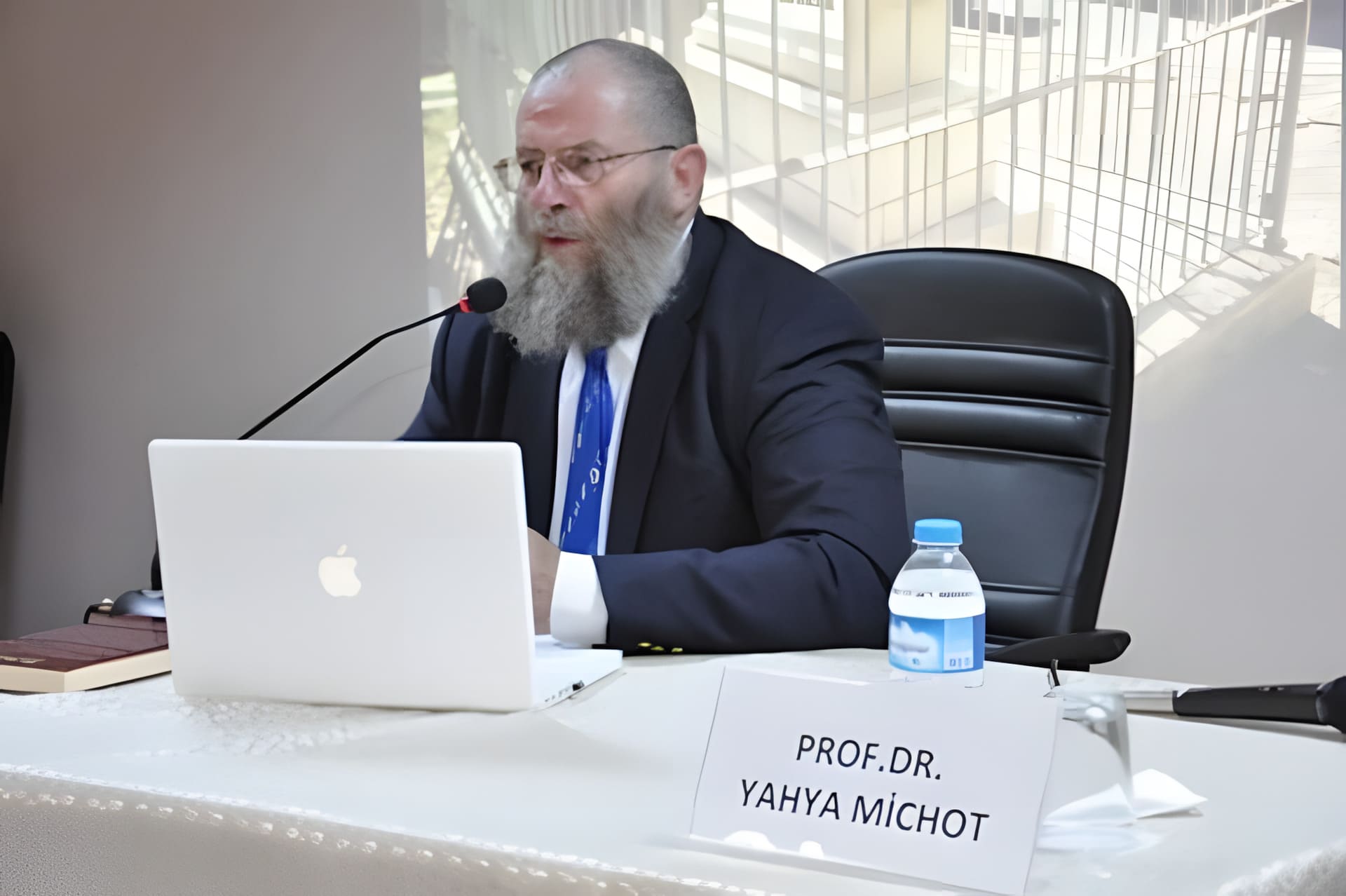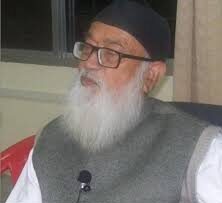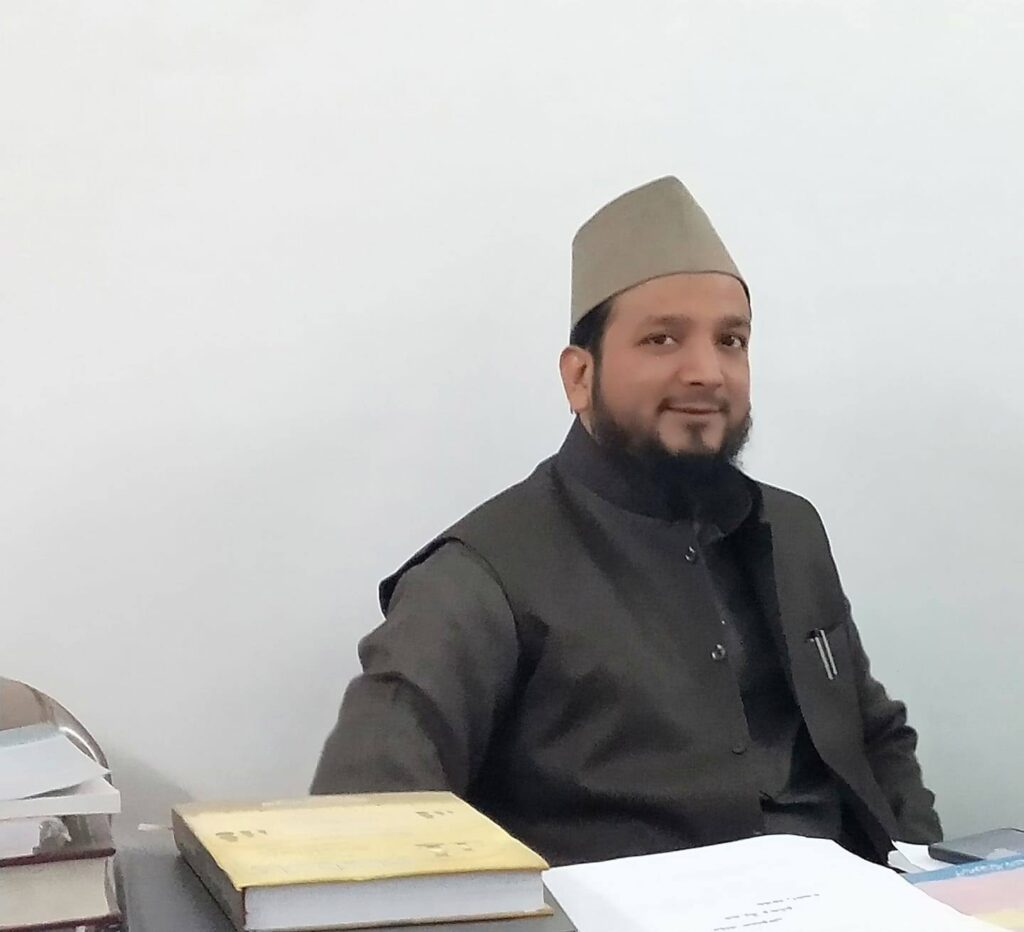By Syed Huzaifah Ali Nadwi, Cambridge
The passing of Dr Yahya Michot has left a quiet emptiness in the hearts of many. His name may have adorned journals and bookshelves, but for those of us who met him—even briefly—it was his presence, not just his intellect, that remained. He was a man who carried the weight of knowledge with humility, and the light of tradition with grace.
I had the honour of meeting him in Cambridge in 2017, during the Tabah Foundation conference. That gathering was filled with scholars, intellectuals, and thinkers—but my most meaningful moment came during an unhurried conversation with Dr Michot over a coffee break. We spoke about Firangi Mahal and the subtle evolution of its Dars-e-Niẓāmī curriculum—something close to my heart, as I’ve long been working on a manuscript that attempts to chart not just the history, but the intellectual and personal lives of its scholars.
What struck me was how genuinely he listened—not as someone tolerating a younger researcher, but as someone who recognised value and depth in what was being shared. He offered generous suggestions, and he spoke with a fluency—not just linguistic, but spiritual and academic—that could only come from decades of deep engagement across traditions. His command of Arabic, Persian, Turkish, Greek, and his native French gave him direct access to worlds of thought that many only encounter through translation.
We exchanged the manuscript afterwards and remained in touch. He was kind in his feedback, discreet in his encouragement, and always made it feel like my work was part of something larger: the long, patient tradition of Muslims thinking, transmitting, and reforming, generation after generation.
One of my clearest memories from that visit is sitting in the common room at Cambridge Muslim College with Dr Michot and Shaykh Abdal Hakim Murad (Tim Winter). I made tea, brought over some biscuits from the local Tesco, and we sat together in quiet conversation. The discussion moved naturally between reflections on Muslim institutions in the West, the need to ground students in both traditional and contemporary traditions, and the intellectual challenges facing Muslim academics. It was the kind of exchange where every word felt thoughtful, and every silence carried meaning.
One topic I raised during that visit was the enduring controversy surrounding figures like Ibn Taymiyyah and Ibn ʿArabī. I asked him how we might approach both without falling into the traps of either polemic or excessive romanticism. Dr Michot offered a strikingly balanced response. He didn’t present them as representatives of opposing camps, but as two sincere and towering thinkers, each responding to the intellectual and spiritual crises of their own time. Ibn Taymiyyah, he explained, was deeply committed to preserving the clarity and integrity of Islamic belief, and his critiques were rooted not in hostility toward mysticism, but in a concern over confusion and distortion. Ibn ʿArabī, on the other hand, was writing from a different plane—his metaphysical language was never intended for the general reader. It required not only philosophical discipline but spiritual subtlety. What struck me most was that Dr Michot didn’t just speak about these scholars—he spoke with them. It felt as though he had lived in their questions, wrestled with their insights, and internalised the tension they both embodied.
This approach reminded me of how Shaykh Abul Ḥasan ʿAlī Nadwī engages with both figures in Saviours of the Islamic Spirit—not as opposites, but as men of depth, sincerity, and vision. He too calls for understanding them in context, with reverence and nuance. It is this tradition of balanced engagement—rooted in generosity, not reaction—that our scholars have long upheld. And it is precisely this kind of reading that we must recover today.
That kind of intellectual integrity defined Dr Michot. He didn’t flatten traditions to make them digestible. He let them remain complex and beautiful—and demanded that we rise to meet them, not the other way around.
What I admired most about Dr Michot was that he never sought to be centre-stage. He was more interested in strengthening others—especially younger, traditionally trained students who were trying to enter academic spaces without diluting their roots. His encouragement was quiet, consistent, and meaningful. I wasn’t the only one he supported. Many of us who are trying to straddle two worlds felt seen and understood by him.
For me personally, that encouragement had a lasting impact. His words and quiet support played a significant role in my decision to pursue doctoral research—something he consistently urged me to take seriously. I am now undertaking a PhD in Islamic Studies at SOAS, University of London, exploring Qurʾānic interpretations and Muslim intellectual dynamics in colonial South Asia, with a focus on Shāh ʿAbd al-ʿAzīz al-Dihlawī (d. 1823) and the Madrasah Raḥīmiyyah. That path is, in many ways, part of his legacy too.
Dr Yahya Michot’s legacy won’t just be in his writings, though those are rich and important. His real legacy lies in the way he made space for others. The way he listened. The way he balanced ʿilm, humility, and principle. The way he carried himself with a kind of noble restraint that reminded you of a different generation of scholars—those who spoke little, thought deeply, and lived with a sense of higher accountability.
His passing is a loss for the Ummah, and particularly for that delicate, often misunderstood world of Muslim academic engagement. He was one of the few who could move between Arabic texts and Western discourse without losing the soul of either. And that, in our time, is no small feat.
May Allah envelop him in His mercy, forgive his shortcomings, and allow the light of his knowledge to continue through all those he touched—directly or indirectly. We ask Allah to raise him among the righteous, the scholars, and the people of sincerity.
وَمَا عِندَ ٱللَّهِ خَيْرٌۭ وَأَبْقَىٰ
“What is with Allah is better and more lasting.” (Sūrat al-Qaṣaṣ, 28:60)



